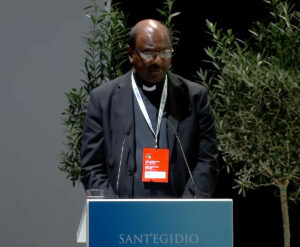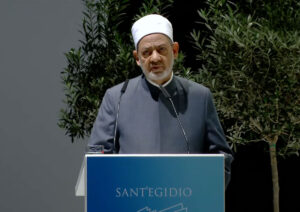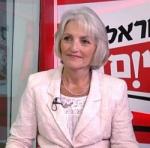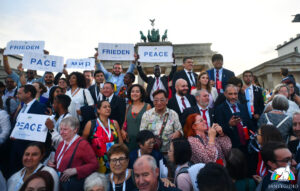Dialogue, the word, the reality, the aspiration featured big time at the Sant’Egidio 37th International Meeting (10th-12th September, in Berlin).
Let’s have a look at some of the input:
Rev. Prof. Dr Jerry Pillay, General Secretary, World Council of Churches: By actively seeking and establishing safe spaces for encounter and dialogue including those with whom we disagree, we believe we chose the right track towards audacious peace. We believe in brave conversations that challenge our perspectives and expand our horizons. Peace does not flourish in an echo chamber; it is born out of dialogue and debate.


Ahmad Al-Tayyeb, Grand Imam of Al-Azhar, Egypt: if you agree with me, that the whole world is like a village, I would like to say that the peace of the world is closely linked to the peace of peoples and reiterate the principle according to which there is no peace if it is not for everyone: that is, there is no peace in Europe without the peace of the Middle East, in particular in Palestine, no peace in Asia without the peace of Africa, no peace in North America without the peace of South America.
Annette Kurschus, President of the Council of the Evangelical Church in Germany: Religious communities are globally connected and contextually rooted in local contexts. The Evangelical Church in Germany condemns Russia’s war of aggression. I am convinced that there is a need for two things at the same time: a strong Ukraine, which can defend itself and its freedom, and the commitment to dialogue, to silence the weapons and put an end to the carnage of thousands of deaths. Our commitment to peace, as Christians, is founded in the awareness that “God is not a God of disorder, but of peace” (1Cor.14:33). God’s sympathy is aimed at everyone. Expressions full of anger, contempt, racist, nationalist, anti-Semitic or Islamophobic are not compatible with the love of God. Without exception, every human being, regardless of religion, origin, skin colour or sex, should to be able to live in dignity and peace. For this reason, it is really worth raising your voice in the name of the love of God and daring to live in peace.
Felix Anthony Machado, Catholic Archbishop, India: Believers in Asia have become aware that dialogue among religions cannot become a pretext to proselytise because dialogue is not undertaken for tactical reasons; honesty is reclaimed and freedom of all is demanded. Dialogue has been a trustworthy exercise where an interlocutor in dialogue awaits response from the partner. The belief of the of the other is respected because faith is accepted as gift of God. Truth centred dialogue invites conversion (metanoia)but conversion is not the aim of dialogue, misunderstood in the sense that one’s religion is changed. In fact, no one converts to any religion; we all convert to God alone. In dialogue all are invited to turn to God alone according to one’s own religious tradition. Let us not forget St Paul VI, who during the time of his visit to Bombay, India, declared the conducive environment for dialogue is mutual friendship. Truth sought after in dialogue is deepened in each dialoguing partner. No one can claim to possess it as his or her private property.
Sharon Rosen, Global Director of Religious Engagement Search for Common Ground, Israel
By embracing fragility, individuals and communities CAN heal the world, (Tikkun Olam as we call it in Judaism). The beauty of this approach is that the more we embrace, the more fragility disappears. As with love. The more we love, the less hate there is in our lives.
You can find out all about the Meeting at: https://www.santegidio.org/

Thanks to “Berliner” Gabriele Meisner for her personal insights, reported below.
A personal view – Gabriele Meisner was the meeting and gave her impression as follows
What kind of atmosphere was there at the Conference?
I experienced the conference as very positive and compact. People came together who put their trust in God and are trying to dare peace in these times of conflict. There was a peaceful atmosphere.
What does the title “Audacity of Peace” mean to you?
I think the title is cleverly chosen, because it is a great challenge to dare peace, for example in the Ukraine war.
I believe that Riccardo has greatly enriched the Church and thus humanity by founding the spiritual community. His peace work has a clear impact on politics and finds acceptance.
It is not a “pious commitment”.
Do you think there will be far reaching consequences of the Conference?
Since Riccardo reaches many public figures and high-ranking representatives of the churches who are committed to this cause as a result of Pope Paul’s peace meeting in Assisi, and since the people of the church support this internationally, there should be effects that cannot be named and proven.
Any other comments you would like to make?
I really liked the fact that this event took place in Berlin, the city of my birth. In this city, once divided and torn by two systems, such a meeting is very fitting.
Moreover, Sant’Egidio has something to say to the world. They involve society on a broad level with their peace work. I admire them because of their many young people who join the peace work. By chance, I met Riccardo and thanked him for this initiative.

